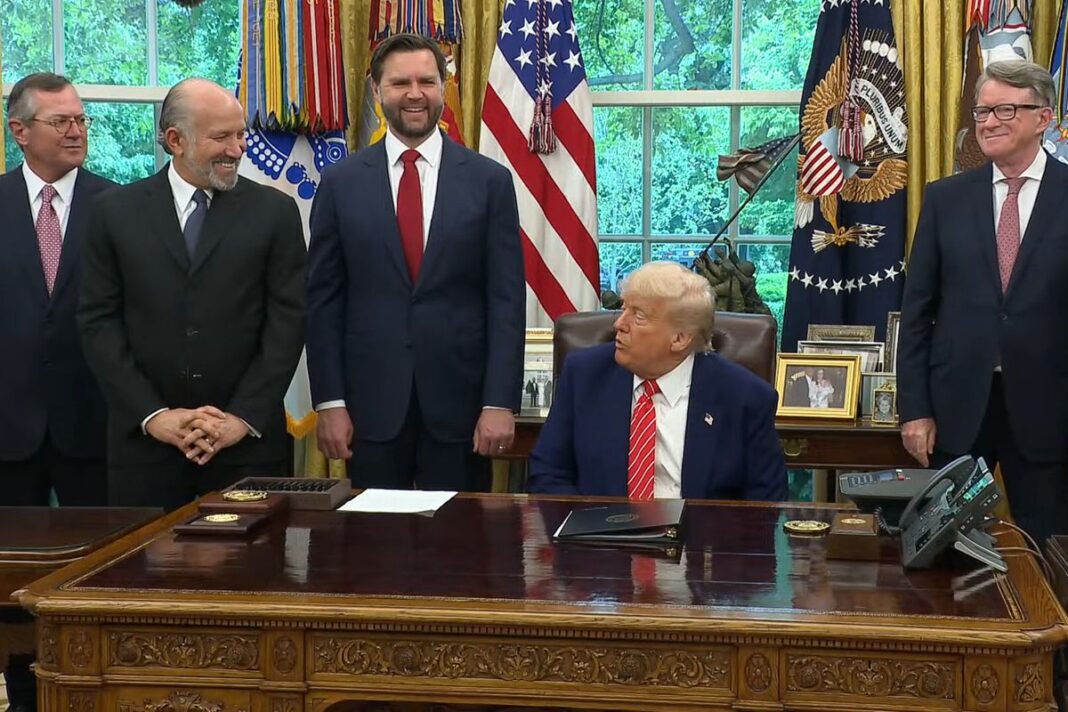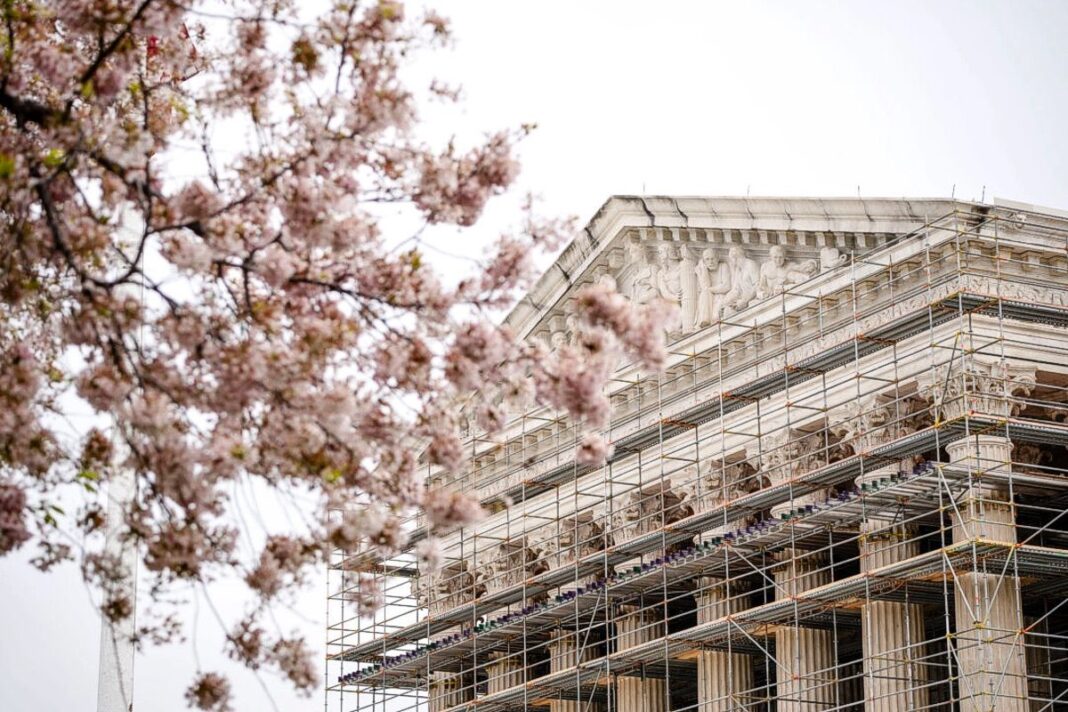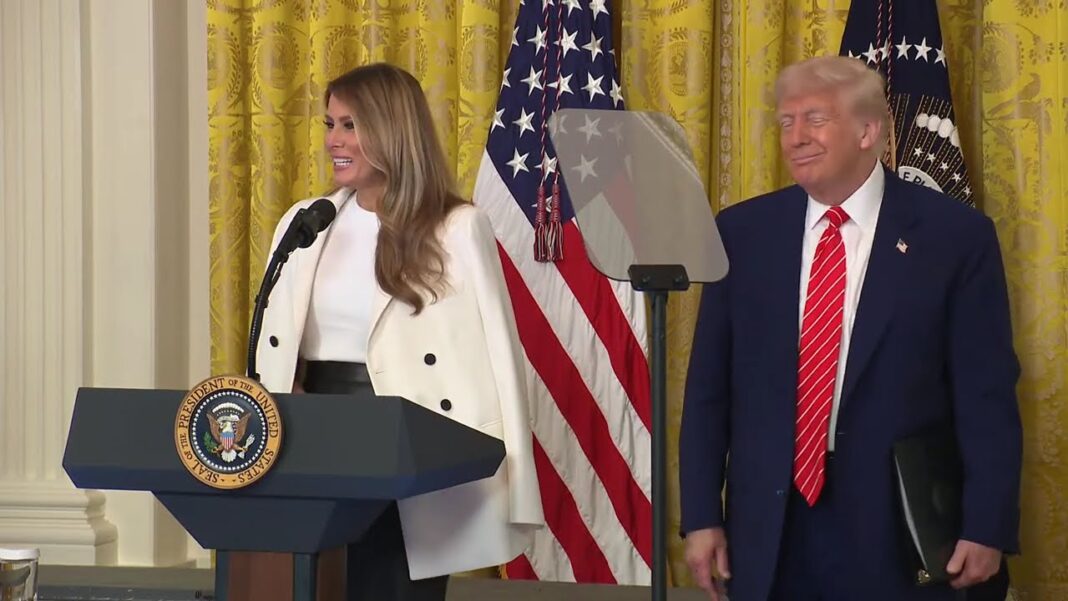The president said China had far more to gain than the United States.
President Donald Trump on May 8 indicated that upcoming talks between the United States and China “could” result in cuts to the current tariffs imposed on the adversary.
“We’re going to see right now,” Trump said from the Oval Office in response to a question on whether Americans could expect a cut in the tariff rates.
“You can’t go any higher. It’s already at 145 [percent]. So we know it’s coming down. I think we’re gonna have a very good relationship.”
In other comments from the White House the same day, Trump signaled optimism on the outcome of the talks.
“I think we’re going to have a good weekend with China. I think they have a lot to gain. I do think they have far more to gain than we do, in a sense, but … I think we’re going to have a very good weekend.”
The day prior, Trump had signaled that upcoming trade talks between top U.S. and Chinese officials in Switzerland on May 10 had been initiated by the Chinese after the rival was initially reluctant to begin such talks without concessions from the United States.
“They said we initiated? Well, I think they ought to go back and study their files,” Trump said in response to a White House reporter’s question during an unrelated event.
If the trade talks were indeed initiated by the Chinese, it represents a reversal from the communist nation’s previous position.
The unexpected announcement followed weeks of uncertainty as both sides remained entrenched.
The United States wanted trade talks while leaving the 145 percent tariffs in place.
Beijing initially said that slackening these tariffs was a precondition of any future dialogue between the two nations.
“Why would I do that?” Trump replied when asked during a May 4 NBC interview whether he’d drop tariffs to begin negotiations with China.
Trump said the United States is gaining from the period of slowed trade, referencing the decades-long trade deficit between the United States and China.
“We were losing hundreds of billions of dollars with China. Now, we’re essentially not doing business with China. Therefore, we’re saving hundreds of billions of dollars. Very simple,” Trump said.
Additionally, as a handful of costs on certain goods have risen since the imposition of the tariffs, most prominently on products such as strollers and car seats, which are overwhelmingly manufactured in China, the administration is also looking into possible tariff exemptions.
During a May 7 hearing before the House Financial Services Committee, Treasury Secretary Scott Bessent told Rep. Ayanna Presley (D-Mass.) that exemptions for tariffs on car seats, strollers, and other baby products are “under consideration.”
By Joseph Lord








